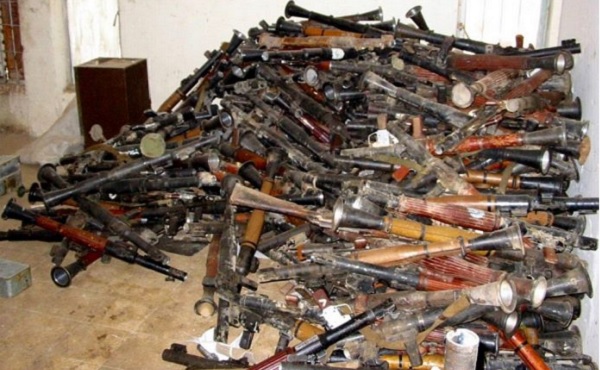
We need tougher action against illegal arms
Illegal arms in the hands of unauthorised people have been identified as one of the issues that pose a threat to global peace.
While the police and the armed forces are doubtlessly the most trained and skillful in the use of firearms, many of the world’s firearms are in the hands of and held by civilians.
It is the reason the regulation of civilian gun ownership is critical and must be taken seriously as part of key efforts to control the ownership, possession, carrying and use of firearms to limit access to these weapons to responsible users in order to reduce the risks of violence.
It is estimated that 300,000 people die globally from small arms in conflict zones each year, while an additional 200,000 are killed with firearms in other circumstances. And in all these deaths, there are additional injuries that require hospitalisation, with others ending up with permanent injury.
There is thus a strong correlation between levels of firearms ownership and death rates.
It is in relation to this that the Daily Graphic is taking a keen interest in the decision by the National Commission on Small Arms and Light Weapons to start assigning unique codes to all firearms in the country to enable easy identification, traceability and accountability (see story in last Friday’s edition).
Although Ghana’s situation has not yet got to the levels of happenings in other parts of the world, recent killings in the country, with the victims being both civilians and members of the security agencies, make the exercise by the commission a very important one.
There have been instances when members of the security agencies have been attacked and their weapons ceased by the attackers.
There are other times too when members of the security agencies are alleged to have stolen and sold their weapons to people, while others are alleged to have lent their official weapons to civilians at a fee.
We, therefore, consider it commendable that the unique codes are not going to be assigned to only weapons in the hands of civilians but also those belonging to the security agencies.
We note that the exercise is a standard system agreed upon by ECOWAS member states to reduce the proliferation of weapons in the sub-region.
But the Daily Graphic foresees several challenges that can militate against the successful coding regime.
They include the difficulty in getting illegal arms in the system to do the marking. We have also learnt of the sheer high cost of these firearms, with an AK47 assault rifle said to cost between GHc7,000 and GHc8,000 on the sub-regional black market.
It is instructive to note that the West African sub-region which is battling with illegal arms and light weapons does not manufacture the arms.
In addition to the coding, therefore, we urge the government of Ghana and other members of ECOWAS to use their influence to impress on countries that manufacture such arms to exercise proper export controls to stem the flow of arms into the sub-region.
We are disappointed by the fact that despite the danger that small arms pose to the peace, development and stability of the country, not much has been done in terms of legislation, as the marking exercise, to begin on October 1, is not backed by legislation.
Ghana must also not forget to take advantage of the influence of NGOs and civil society to involve them in policy-making.
The average human being wants to live in peace; therefore, everything must be done, including strong legislation and enforcement, to ensure that we deal decisively with the small arms menace.
